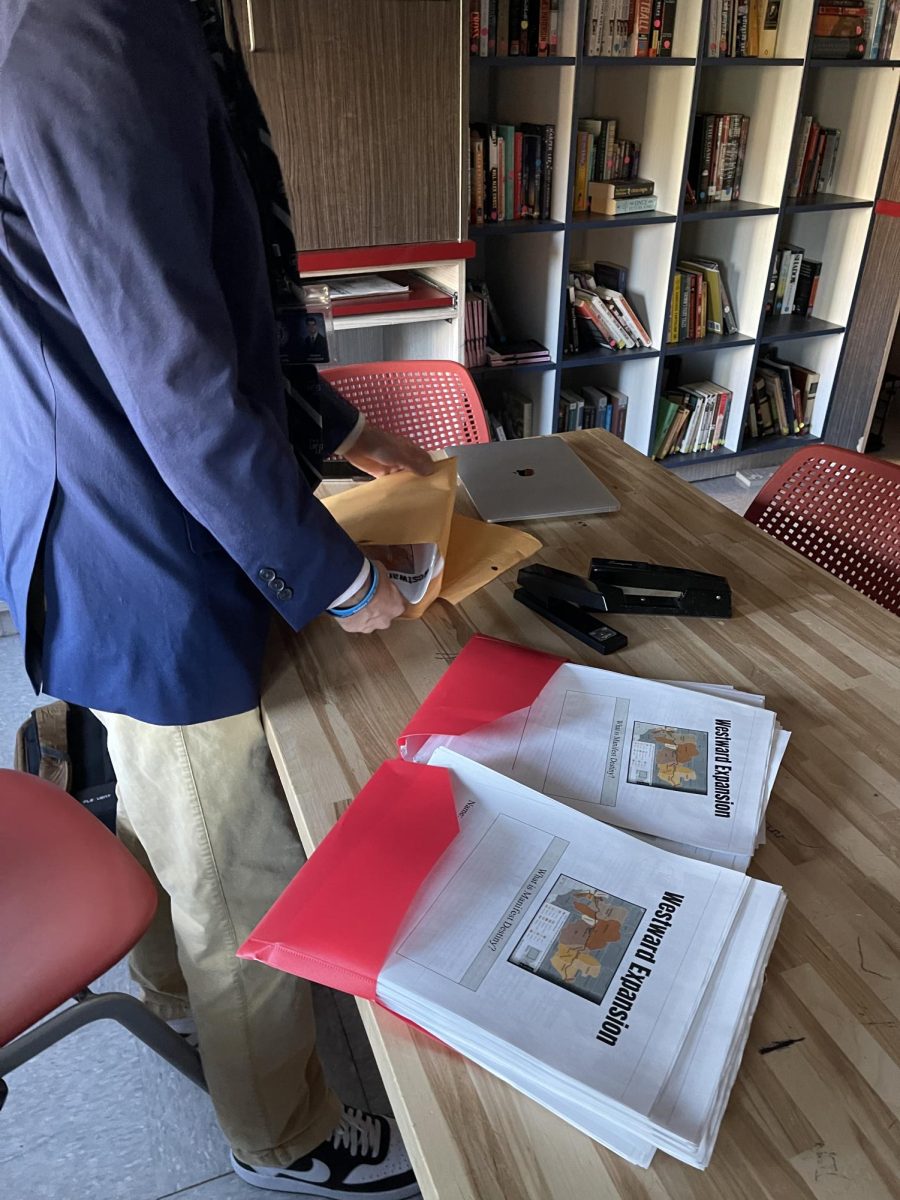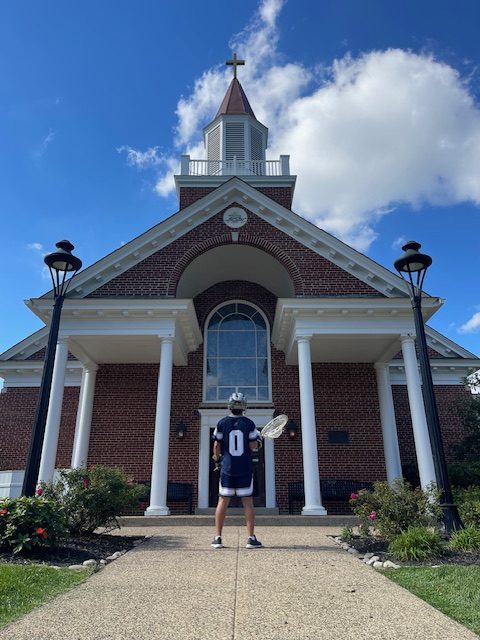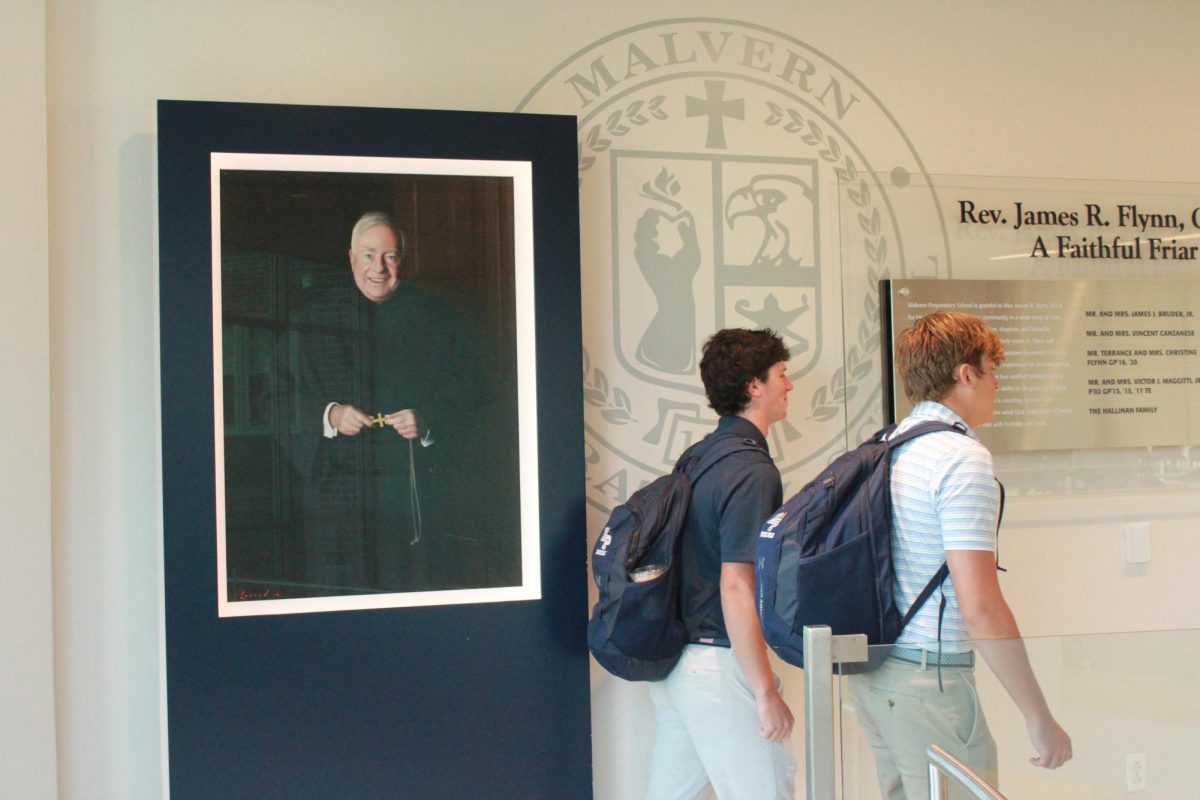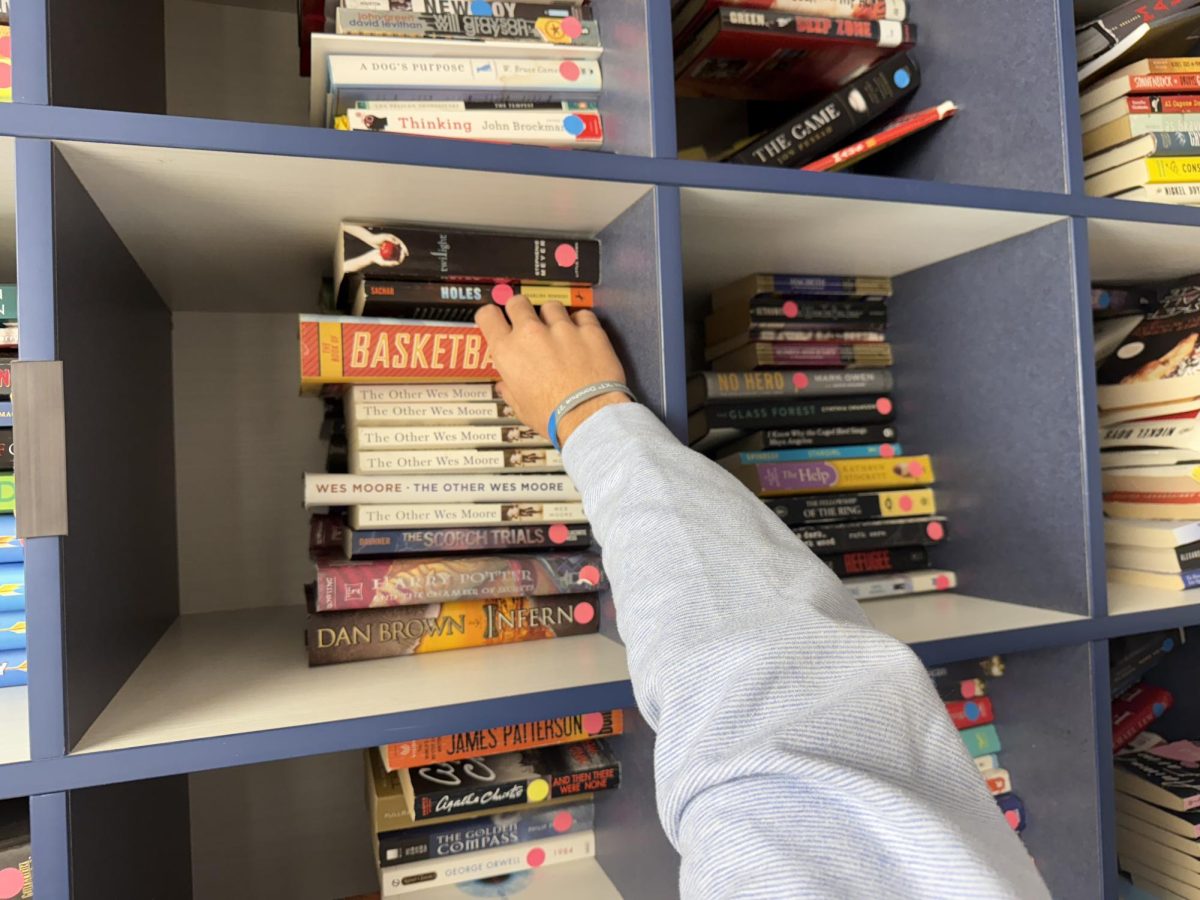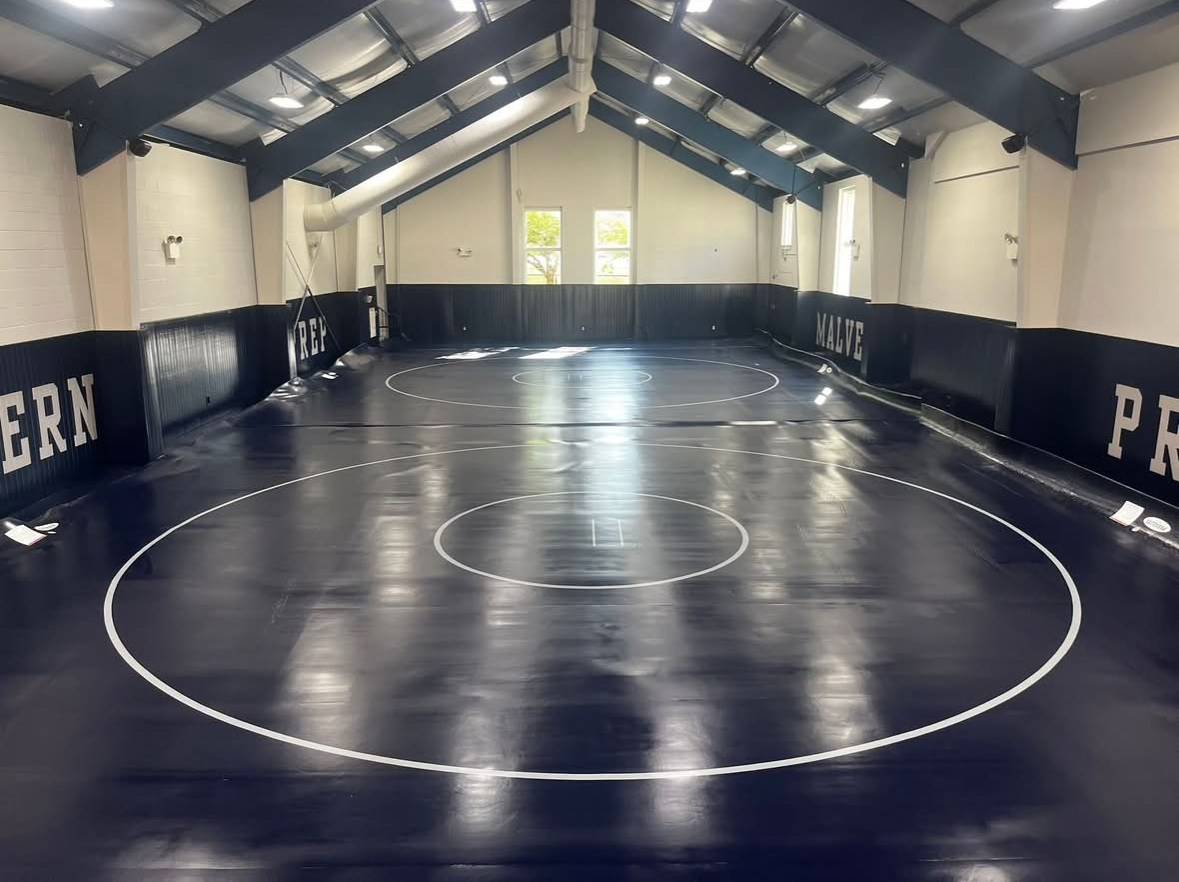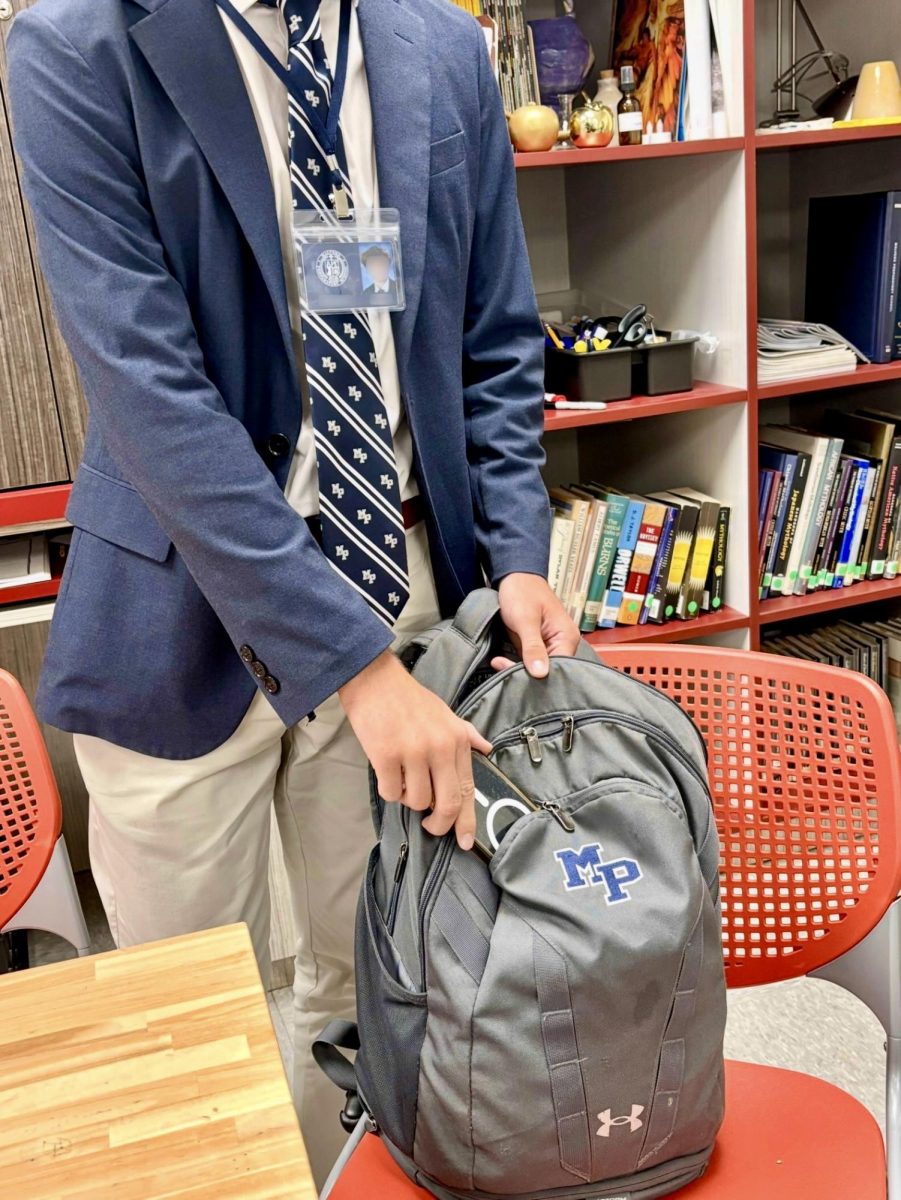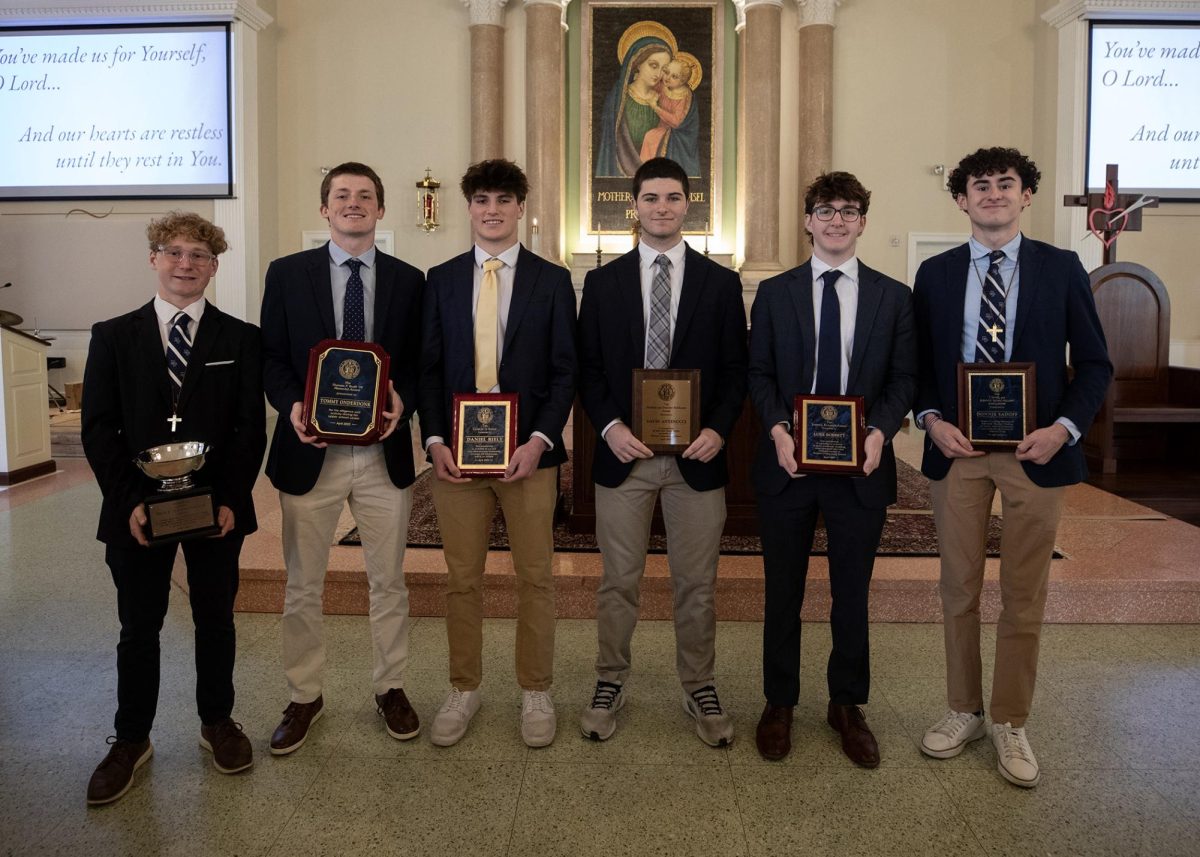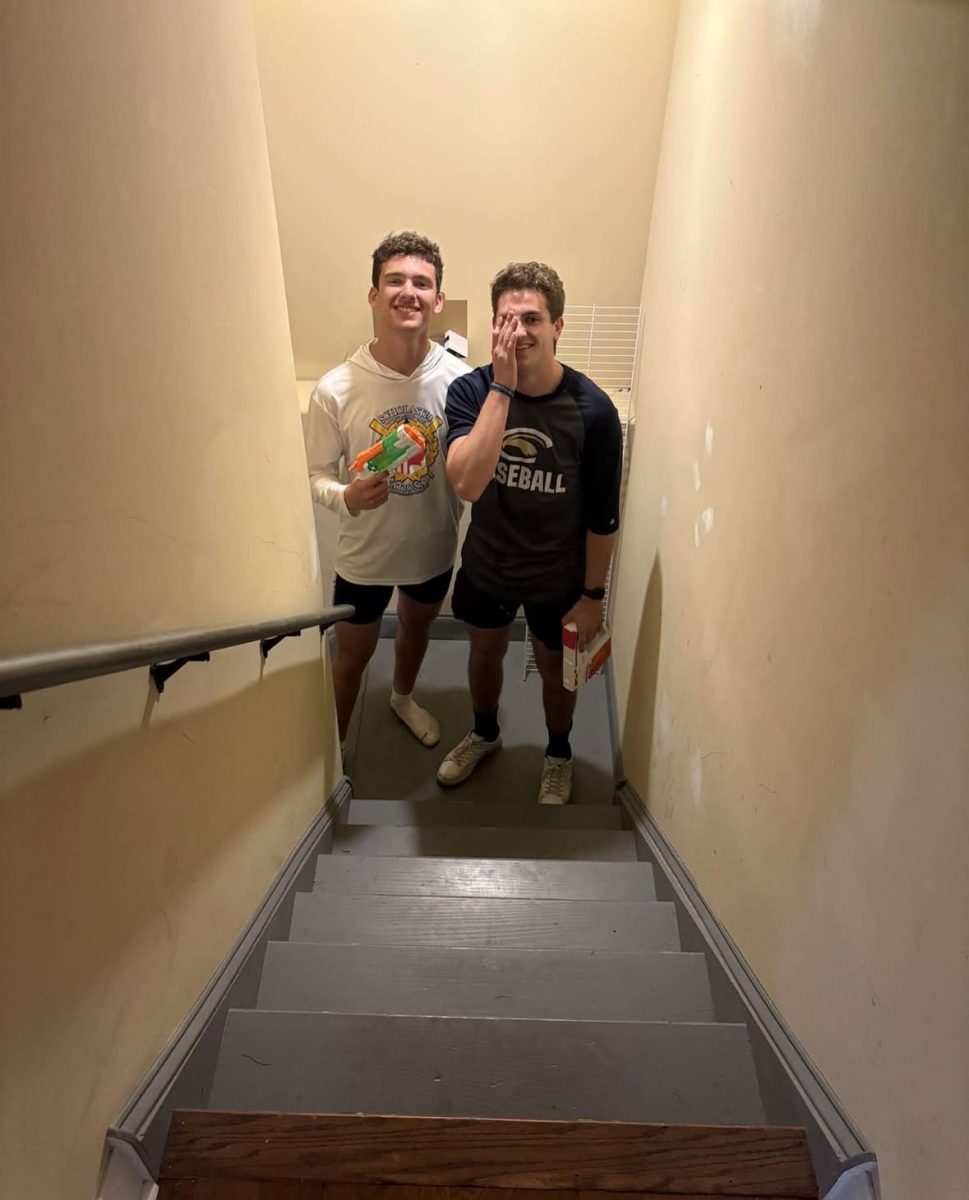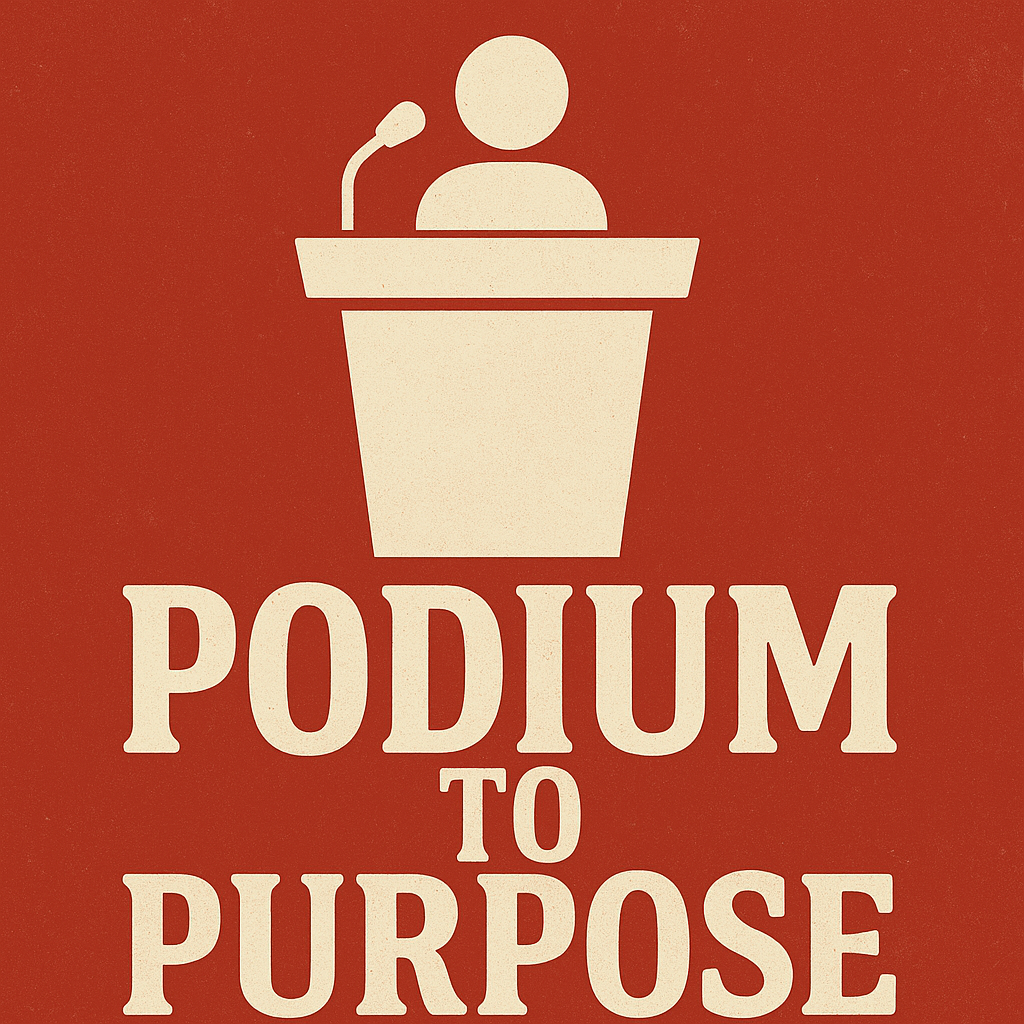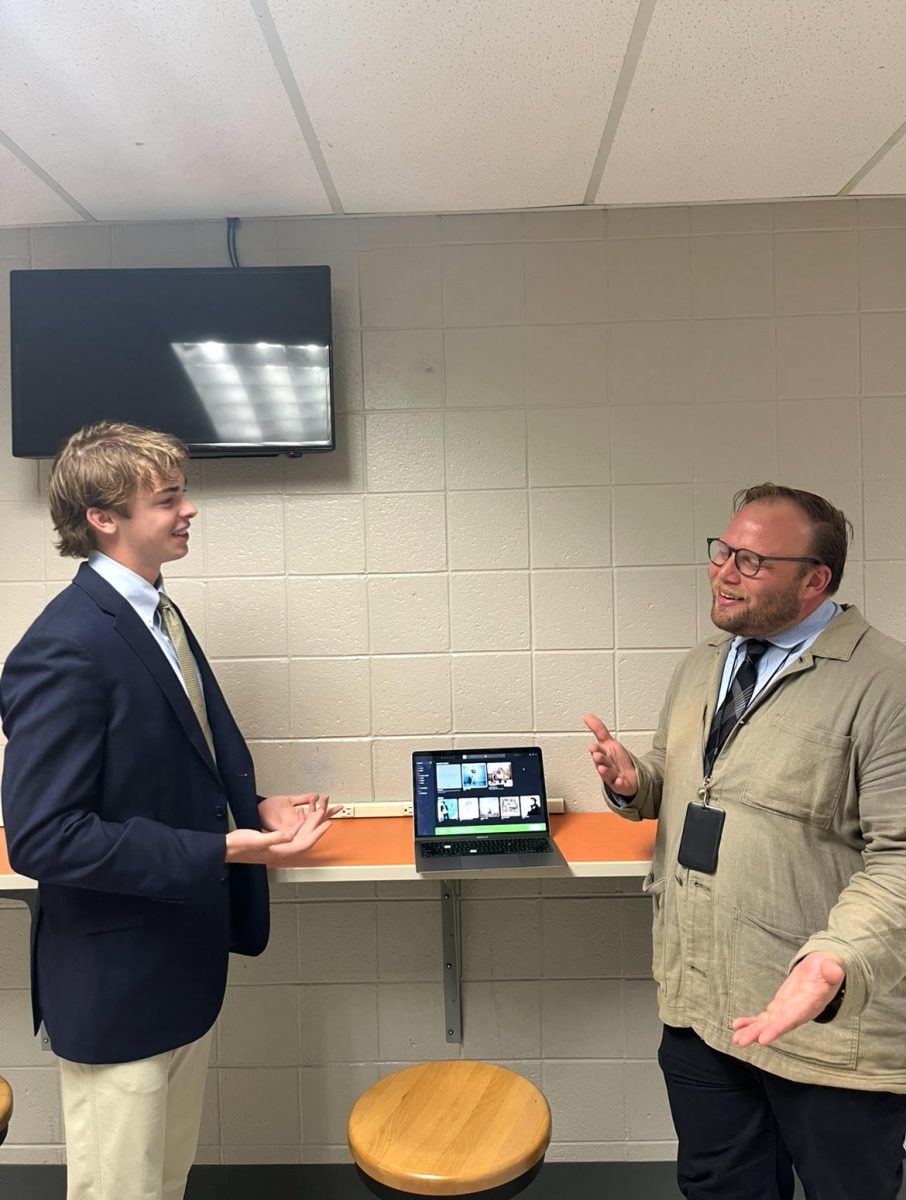Expert presentation arranged by Counseling Department aimed to educate students on dangers of teenage substance abuse.

Upper school and middle school students attended separate assemblies about addiction and recovery on April 20, led by licensed clinical social worker and addiction expert Mr. Michael Blanche.
Senior Kyle Hegarty started off the upper school presentation by introducing Blanche, who has worked with the treatment of drugs and alcohol mainly for the last 20 years.
Currently, Blanche works at the Therapeutic Alliance, which is just a couple minutes away from Malvern’s campus. He is also a professor at West Chester University.
He spoke with students about a variety of topics surrounding drugs, alcohol and addiction, emphasising that he was not a “prohibitionist’ but only wanted students to be more conscientious about substance abuse.
Blanche also spoke about the dangers of substance abuse earlier in life, developmental stages, and drug misinformation. According to Blanche, addiction is significantly more likely when people begin using substances before age 18.
The National Center on Addiction and Substance abuse states that nine out of ten people who abuse or are addicted to nicotine, alcohol or other drugs began using these substances before they were 18. People who began using addictive substances before age 15 are nearly seven times likelier to develop a substance problem than those who delay first use until age 21 or older.
Blanche also discussed the real opioid epidemic present in our region. According to the Pennsylvania Department of Health and Human Services, more Pennsylvania residents died of opioid overdoses than fatal car crashes in 2015. Every day, at least ten state residents die of opioid or heroin overdoses.
Blanche brought Tim Barnes as a volunteer guest speaker. Barnes, 28, who grew up in Paoli and attended Conestoga High School, shared his life experiences regarding substance abuse.
Barnes spoke about about his struggles of wanting to be liked and to always be the best, which led to a serious substance abuse problem. He said he first tried marijuana when he was 11, and his dependency on alcohol and drugs progressed through high school. According to Barnes, everyone was drinking, which just made it easier for him to do.
At the end of his senior year, he went to a treatment center, but this did not lead to recovery for him, nor did several other attempts to get help.
Barnes’s life turned a corner in December 2009, when he drove straight into a telephone pole after getting very drunk and high at a house party. He faced traumatic injuries, including a fracture to his C5 vertebrae. He can no longer run, jump, or play basketball like he used to, but he considers this accident his wake up call.
After his treatment at Bryn Mawr Rehabilitation Center, Barnes went to college and graduated from West Chester University. Now he is working on his master’s degree, which is something he never dreamed of before his recovery.
He thinks of himself now as a contributing member of society, and a better person because of his recovery program.
Counselors who organized the assembly hoped to get across a clear message to the students. “The main thing we’re looking for is just to give you the information,” School Counselor Ms. Kelley Bittner said. “To arm you with the facts.”
Bittner arranged the assembly in collaboration with Associate Director of School Counseling Mrs. Ann Wuetig-Coia. Bittner said that getting Blanche as a speaker was lucky because “he is a leading expert in his field, not just in the area but in the country.”
After Barnes’s talk, Blanche ended with a question and answer period with just the students. He asked faculty to leave the room so students could ask candid questions.
“I thought the presentation went very well,” Hegarty said. “I really liked the question and answer period we had, and I also liked how the teachers respected us enough to leave the room and let us have an open discussion.”
Blanche was also pleased with the assembly. “The upper school was amazing, they really asked some great questions at the end and were really respectful,” he said. “I was also really happy the staff trusted us to have a dialogue with you guys at the end.”
“I was extremely happy with the questions you guys asked,” Blanche said. “I could have kept going for another fifteen minutes just on questions, really accurate and good questions.”


